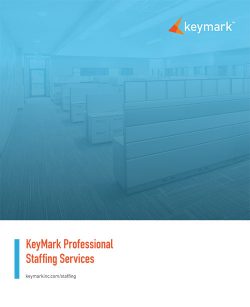Buzzword Buster: What is a CoE?
The technology industry loves acronyms. OCR, RPA, ECM, BPO… we could go on and on. But, while most of the time it’s all pretty industry-standard stuff, once in a while, a buzzword comes along with a confusing number of possible variations and meanings. This time, we’re talking about a CoE. So what is a CoE, and what does it mean for your automation journey? Let’s find out.
What do you want to call it?
A CoE has several translations, the most common meaning “Center of Excellence”. Traditionally, a Center of Excellence indicates a group of people overseeing and managing your processes. Some have refuted the phrase in favor of more neutral wording, but whether you’re talking about the benefits of a Center of Excellence, Center of Enablement, or a Center for Digital Transformation, understand that they are variations of the same thing.
For the sake of clarity — and because we really do love acronyms — we’ll stick with CoE for now.
What’s the Purpose of a CoE?
The purpose of a CoE is to help your organization achieve its digital transformation goals and objectives. A CoE supports this mission by providing and embedding best practices from their combined experiences for workflow, capture, content management, RPA, and beyond.
Specifically, a CoE has three primary functions:
- Leadership and Education — Understand what automation investments are capable of and transfer knowledge to others for enterprise-wide adoption.
- Pipeline and Demand — Identify use cases for automation tools and create business plans for implementation and results.
- Implementation and Support — Provide deployment framework and manage the day-to-day technology operations, including upkeep and problem resolution.
Why Build your CoE?
A CoE can benefit your organization as well as your employees individually by providing and promoting:
- Incentives for technological upskilling.
- Opportunities for advancement and pay raises.
- The technological independence of your organization.
- A bigger window into the needs of your organization.
- Joint consensus on automation projects, their necessity, and execution.
- Fewer operating costs from banished solutions or successful upgrades.
But the biggest reason? Because teamwork makes the dream work. You could invest in dozens of solutions to handle problem processes, but without people who understand how all the tools in your toolbelt work, it’ll be money wasted. Your CoE is a team within your teams that supports fellow teams by understanding the end goal of all your automations, how to apply them, and educating others on how to use them.
Your Guide to Establishing a CoE
Establish a Clear Vision
Like any journey, it’s best to have a clear vision for your digital transformation before beginning. Developing an automation strategy is an essential starting point. By building a clear strategy complete with goals and objectives, you’ll provide tangible milestones for your future CoE to achieve and support with their technical capabilities.
Assemble the Team
A CoE can consist of many specialized positions, but there are some core positions that every CoE should have. Members of your organization with technical expertise can be appointed to these positions, or you can outsource to a knowledgeable partner.
- Head of Automation — The face and voice of automation within the organization. This executive role is responsible for the automation program and evangelizes the benefits of automation across all levels.
- Developer — Responsible for designing, developing, and testing automated processes. This includes developing skills associated with Capture, Workflow, Content Management, and RPA.
- Business Analyst — Works to understand each process and document requirements. The Analyst works alongside the Developer to communicate the business case and assists with designing the automated solution.
- Infrastructure Engineer — Responsible for designing, building, and supporting an infrastructure for automation capabilities that is sustainable and scalable.
Achieving Digital Transformation through Partnership and Education
According to PwC’s Workforce Hopes and Fears 2022 survey, only 40% of respondents reported their employers were taking steps towards technological upskilling. That’s a problem when building a CoE because technical expertise is critical for every function of the job. Further talent shortages result from an inability to retain workers with technological skills as demands spike.
The long-term answer lies in greater education for current and future employees managing digital workforces. In the short term, KeyMark provides professional staffing services that grant you instant access to fully sourced, trained, and certified automation experts. Ultimately, our end goal is to get you the support and training you need to take full control of your CoE once you’re comfortable doing so — but dedicated resources are a great way to get your CoE up and running now, without the extra risk and overhead of staffing solo.
Start Developing your CoE!
To start developing your CoE with support from KeyMark, contact your account manager or open the chat at the bottom of your screen for any questions. To learn more about KeyMark’s professional staffing services, download our free brochure!




